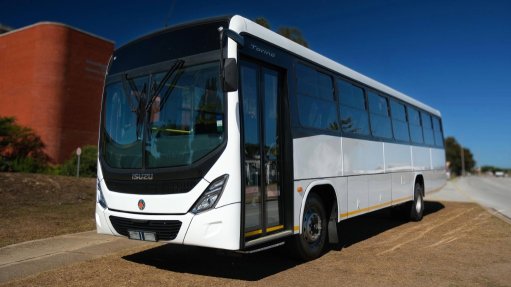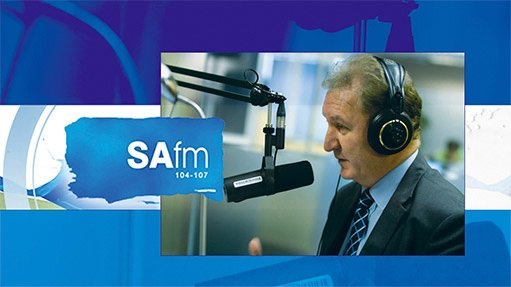US helicopter company has released advanced vertical take-off aircraft design concepts
Renowned US helicopter manufacturer Bell Textron this week unveiled design concepts for future high-speed vertical take-off and landing (HSVTOL) aircraft. These design concepts make use of technologies being developed by the company, which is part of the Textron group.
HSVTOL technology would allow Bell to develop aircraft that would combine the ability to hover like a helicopter with the capabilities of a fighter aircraft, including speed, survivability and range. The design concepts possess cruise speeds of more than 400 knots, true independence from runways, ability to maintain sustained hovering flight, low downwash while hovering, and scalability across a wide range of missions, from personnel recovery using an uncrewed air vehicle, to tactical mobility. And the gross weights of the design concept aircraft could range from 4 000 lbs (1 814 kg) to more than 100 000 lbs (45 359 kg).
“Bell’s HSVTOL technology is a step change improvement in rotorcraft capabilities,” affirmed company VP: innovation Jason Hurt. “Our technology investments have reduced risk and prepared us for rapid development of HSVTOL in a digital engineering environment, leveraging experience from a robust past of technology exploration and close partnerships with the [US] Department of Defence and Research Laboratories.”
Underlying the new HSVTOL design concepts were the convergence of tiltrotor aircraft technologies, advances in digital flight control systems, and emerging power plant technologies. Bell partnered with Boeing to develop the V-22 Osprey tiltrotor aircraft, now in service with the US Air Force (the CV-22B version), the US Marine Corps (MV-22B), the US Navy (CMV-22B) and the Japan Ground Self-Defence Force (army). Bell also had decades of experience in developing innovative VTOL technologies and building demonstrator aircraft, such as the X-14, X-22, XV-3 and XV-15.
However, the company gave no details regarding the actual HSVTOL technologies incorporated into the concept designs. “FlightGlobal”, the online edition of the respected UK aerospace weekly “Flight International”, has drawn provisional conclusions from analysis of Bell Textron patent submissions and from the image of the design concepts released by the manufacturer.
The journal suggests that the aircraft in image, shown in conventional flight mode, would be fitted with foldable proprotors. (A proprotor combines the roles of a helicopter’s main rotor and a fixed-wing aircraft’s propeller – the V-22 has two proprotors.) The aircraft could take-off using the proprotors and then switch to jet thrust and aerodynamic lift (generated by wings) for conventional flight mode, with the proprotor blades folding to reduce drag. And of course it reverses the process for landing.
A “convertible engine” could power such aircraft. This was a jet engine that could switch between turboshaft and turbofan modes. Such an engine already existed, developed to power the F-35B VTOL version of the F-35 Lightning II multirole stealth fighter. Alternatively, the journal pointed out, citing one of the Bell patent applications, the jet engine could power an electrical generator which would send current to electric motors which would power the proprotors.
“FlightGlobal” also noted that one of the three aircraft in the released image appeared to be uncrewed, while the other two seemed to be crewed. All three aircraft had some stealth characteristics, including having their vertical stabilisers canted outwards.
Article Enquiry
Email Article
Save Article
Feedback
To advertise email advertising@creamermedia.co.za or click here
Comments
Press Office
Announcements
What's On
Subscribe to improve your user experience...
Option 1 (equivalent of R125 a month):
Receive a weekly copy of Creamer Media's Engineering News & Mining Weekly magazine
(print copy for those in South Africa and e-magazine for those outside of South Africa)
Receive daily email newsletters
Access to full search results
Access archive of magazine back copies
Access to Projects in Progress
Access to ONE Research Report of your choice in PDF format
Option 2 (equivalent of R375 a month):
All benefits from Option 1
PLUS
Access to Creamer Media's Research Channel Africa for ALL Research Reports, in PDF format, on various industrial and mining sectors
including Electricity; Water; Energy Transition; Hydrogen; Roads, Rail and Ports; Coal; Gold; Platinum; Battery Metals; etc.
Already a subscriber?
Forgotten your password?
Receive weekly copy of Creamer Media's Engineering News & Mining Weekly magazine (print copy for those in South Africa and e-magazine for those outside of South Africa)
➕
Recieve daily email newsletters
➕
Access to full search results
➕
Access archive of magazine back copies
➕
Access to Projects in Progress
➕
Access to ONE Research Report of your choice in PDF format
RESEARCH CHANNEL AFRICA
R4500 (equivalent of R375 a month)
SUBSCRIBEAll benefits from Option 1
➕
Access to Creamer Media's Research Channel Africa for ALL Research Reports on various industrial and mining sectors, in PDF format, including on:
Electricity
➕
Water
➕
Energy Transition
➕
Hydrogen
➕
Roads, Rail and Ports
➕
Coal
➕
Gold
➕
Platinum
➕
Battery Metals
➕
etc.
Receive all benefits from Option 1 or Option 2 delivered to numerous people at your company
➕
Multiple User names and Passwords for simultaneous log-ins
➕
Intranet integration access to all in your organisation





















